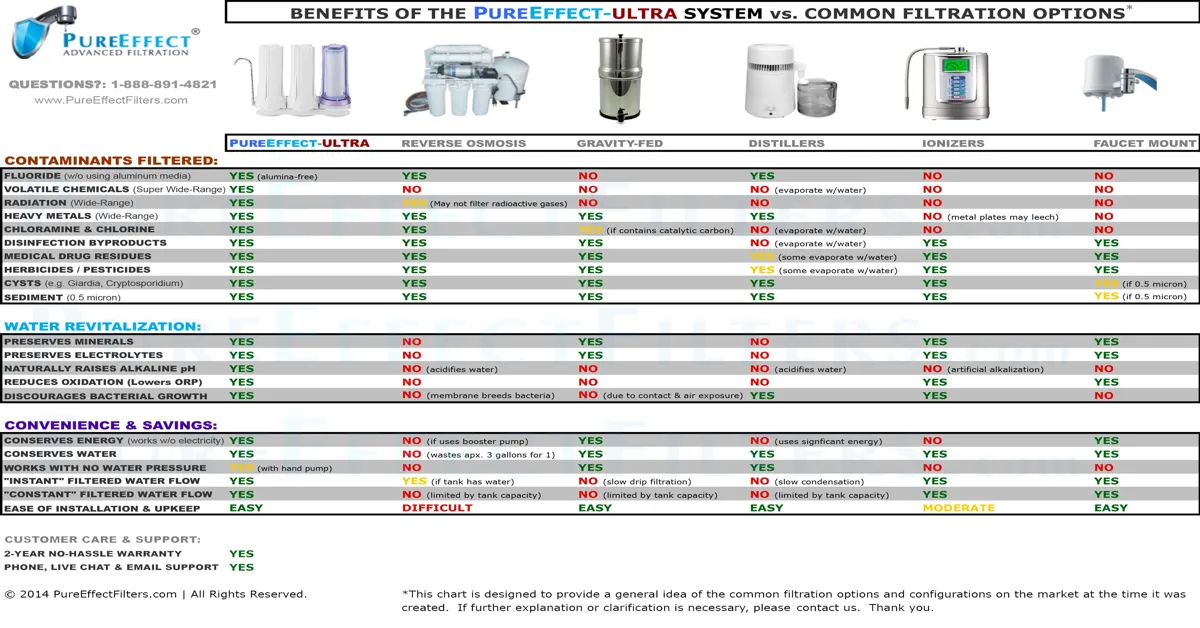To effectively remove bacteria and viruses from your water, a whole-house UV water filtration system is highly recommended.
Introduction: Why It’s Essential
In the quest for pure, safe water, the notion of installing a whole house water filter for bacteria and viruses might sound like a plot from a futuristic sci-fi movie. Yet, here we are, turning what seems like fiction into reality, right in our homes. This ingenious solution ensures every drop of water from every tap is as clean and healthy as it can be.
Let’s dive into this liquid marvel, shall we? Imagine a guardian that stands vigil over every molecule of water that enters your home, scrutinizing it for unwanted guests like bacteria and viruses. This isn’t just any guardian; it’s a whole house water filter, tailored specifically to combat these microscopic invaders. The beauty of this system is its comprehensive protection.
It doesn’t just purify the water you drink; it ensures that the water you bathe in, cook with, and even use to water your plants, is devoid of pathogens. The technology behind this marvel is both fascinating and effective. It employs a combination of filtration methods, including but not limited to, ultraviolet (UV) light, which acts like the sun’s rays to neutralize harmful organisms, and advanced filtration materials that physically remove pathogens from water.
This dual-action approach ensures that water flowing through your pipes is both clean and safe. Inhabiting a home with a whole house water filter for bacteria and viruses instills a sense of confidence and peace. No longer will there be a need to second-guess the purity of your water.
Whether it’s filling a glass to quench your thirst or running a bath to unwind after a long day, you’ll know that you’re enveloped in a bubble of purified water. Embracing such a system might seem like a leap into the unknown, but the benefits are immediate and tangible. From safeguarding your family’s health to protecting your appliances from scale buildup (a bonus of purified water), the advantages of installing a whole house water filter for bacteria and viruses are as clear as the water it produces.
So, take the plunge and transform your home into a sanctuary of purity and safety.

How Do Whole House Water Filters Work?
In the quest for pristine, safe water flowing from every tap in your home, the idea of installing a whole house water filter for bacteria and viruses might just be your knight in shining armor. This isn’t just about quenching your thirst with confidence; it’s about turning the tide in the battle against invisible foes that lurk in your water supply. So, let’s dive into the nitty-gritty, shall we? Understanding the Enemy: Bacteria and Viruses in Water First off, it’s crucial to recognize the adversaries: bacteria and viruses.
These microscopic invaders can sneak into your water from various sources, leaving you vulnerable to health hazards. But fear not! A whole house water filter acts as a formidable fortress, ensuring these uninvited guests don’t crash your hydration party. Choosing Your Champion: The Right Filter Not all heroes wear capes, and in the realm of water purification, the right whole house water filter is your champion.
It’s about finding a system equipped with technology adept at capturing and neutralizing bacteria and viruses. Think of it as selecting the best warrior to guard the gates of your castle (aka your home). The Lifesaver: Benefits of a Whole House Water Filter Installing this guardian of purity doesn’t just shield you from microbial threats; it also elevates the overall quality of your water.
Imagine softer skin and hair, prolonged lifespan of plumbing and appliances, and, most importantly, peace of mind knowing your water is scrutinized and safe. It’s like having your own personal water guardian angel. Installation: The Quest Begins Embarking on the installation journey might seem daunting, but it’s a quest worth undertaking.
Whether you’re a DIY enthusiast or prefer the expertise of a professional, getting your whole house water filter up and running is a pivotal step toward safeguarding your household’s health. In essence, opting for a whole house water filter for bacteria and viruses is akin to donning a suit of armor against microscopic threats. It’s a smart, forward-thinking move that ensures every drop of water in your home is not just refreshing but, more importantly, safe.
Remember, in the pursuit of purity, being well-equipped is half the battle won.
Benefits of Installing a Whole House Water Filter
In our quest for pure, safe drinking water, the lurking threats of bacteria and viruses can turn a simple sip into a health hazard. Enter the whole house water filter for bacteria and viruses—your home’s knight in shining armor, poised to battle these microscopic invaders. This isn’t just any filter; it’s a guardian that ensures every drop from every tap is as clean and safe as nature intended.
Why, you might ask, is such a system paramount in our homes? The answer is simple yet critical: water sources, even those treated by municipal facilities, can become contaminated with a variety of pathogens, including but not limited to E. coli, salmonella, and even more sinister viruses that are too minute for standard filters to catch. Opting for a whole house water filter specialized in banishing bacteria and viruses is not just adding another layer of protection; it’s about securing peace of mind.
These systems employ advanced technologies like UV purification, which acts like sunlight in a box, zapping away any unwanted microorganisms with the power of ultraviolet light. It’s about bringing the power of modern science to your tap, ensuring that every glass of water, every shower, and every pot of pasta is not just crystal clear but also clinically clean. This isn’t a luxury; it’s a necessity in ensuring the well-being of you and your loved ones.
So, let’s dive deeper into how these systems work, why they’re essential, and how to choose the best one for your fortress of solitude. Because when it comes to health, the best defense is a good offense—and a whole house water filter for bacteria and viruses is just that.
Choosing the Right Whole House Water Filter
Embarking on the quest for crystal-clear, pure water throughout your entire residence? A whole house water filter for bacteria and viruses might just be the knight in shining armor you’re searching for. With the myriad of microscopic invaders lurking in our water supply, ensuring every drop from every tap is free from these unwelcome guests is more crucial than ever. But fear not, for the solution is simpler and more accessible than you might think.
When it comes to safeguarding your home’s water, the magic lies in choosing the right filter. Not all filters are created equal, and the key to banishing bacteria and viruses lies in select, high-efficiency systems designed to tackle these tiny but mighty adversaries. These systems don’t just filter; they transform your water into a bastion of purity, ensuring peace of mind with every sip and shower.
Opting for a whole house water filter specifically engineered to combat bacteria and viruses is akin to placing a guardian at your home’s water entrance, diligently screening out the tiniest of invaders. It’s an investment in health, comfort, and the sheer joy of water that tastes as it should – pure and refreshing. In short, embracing a whole house water filter for bacteria and viruses is not just about enhancing water quality; it’s about elevating your home’s health standards.
With this steadfast guardian, you can wave goodbye to waterborne worries and hello to hydration heaven.
Installation & Maintenance: Keeping Your Filter Effective
In the quest for pristine, safe water flowing from every tap in your home, a whole house water filter for bacteria and viruses is akin to a knight in shining armor. This valiant protector stands guard, ensuring that the water you drink, bathe in, and cook with is free from unseen microbial foes. It’s a comprehensive shield that covers the entirety of your household’s water supply, not just a single faucet, delivering peace of mind with every drop.
Water, the elixir of life, can sometimes harbor less-than-beneficial guests like bacteria and viruses. These microscopic invaders can sneak into your water supply, turning a source of nourishment into a potential health hazard. This is where the prowess of a whole house water filter becomes apparent.
It acts as a sentinel, employing multiple filtration stages to catch and neutralize these unwelcome guests before they ever reach your glass. Equipped with technologies such as UV purification, these systems don’t just filter; they obliterate pathogens, ensuring that every water outlet in your home delivers water that’s not just clean, but safe. It’s like having a personal water quality lab right in your basement or utility room, tirelessly working to protect you and your loved ones.
Not all heroes wear capes, and in the world of water purification, a whole house water filter for bacteria and viruses is a champion worth having in your corner. It ensures that from the moment you turn on your shower in the morning to the filling of the kettle for a late-night tea, the water you use is as pure as nature intended, minus the unwanted microscopic tagalongs.
Statistical Information: whole house water filter for bacteria and viruses
| Feature | Effectiveness | Additional Facts |
|---|---|---|
| UV Filtration | 99.99% effectiveness against bacteria and viruses | Requires electricity to operate but does not add chemicals to water. |
| Reverse Osmosis | Removes up to 99% of pathogens | Also eliminates heavy metals, chlorine, and other contaminants. |
| Absolute Micron Filtration | 99.9% effective at removing bacteria | Filters with a pore size of 0.2 microns are required for virus removal. |
| Activated Carbon | Varies, not as effective for viruses | Improves taste and removes odors, pesticides, and some metals. |
| Chlorination | Highly effective against bacteria, less so for some viruses | Commonly used in municipal water treatment, can leave residual taste. |
| Ceramic Filters | Up to 99% for bacteria, variable for viruses | Often combined with other methods, like activated carbon, for improved effectiveness. |
Conclusion: A Vital Investment for Your Health
Ensuring your home’s water supply is free from harmful bacteria and viruses is not just about safeguarding health; it’s about peace of mind. Whole house water filters stand as vigilant guardians, ensuring every drop of water in your home is clean and safe. By installing such a system, you’re not just making a decision for now; you’re investing in the well-being of your family for years to come.
Let this be a call to action: prioritize your family’s health by considering a whole house water filter. It’s a choice that echoes the importance of clean water in maintaining a healthy lifestyle and preserving our most precious resource for future generations.
Read More
https://ewaterpurifier.com/water-filter-sv-price/
https://ewaterpurifier.com/35-micron-water-filter-cartridge-2/
https://ewaterpurifier.com/grayl-water-filter/
https://ewaterpurifier.com/zero-water-filters-near-me/
You Can Find The More Resources Here
https://www.aquaoxwaterfilters.com/product/bacteria-virus-uv-disinfection-water-filter/
